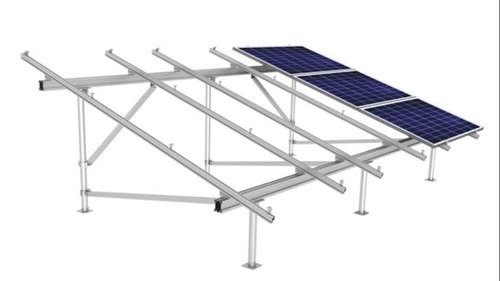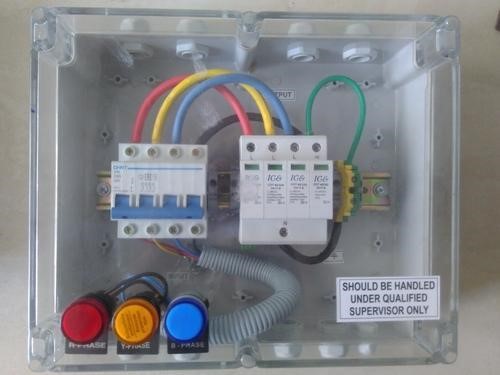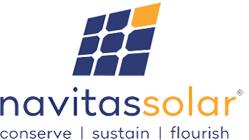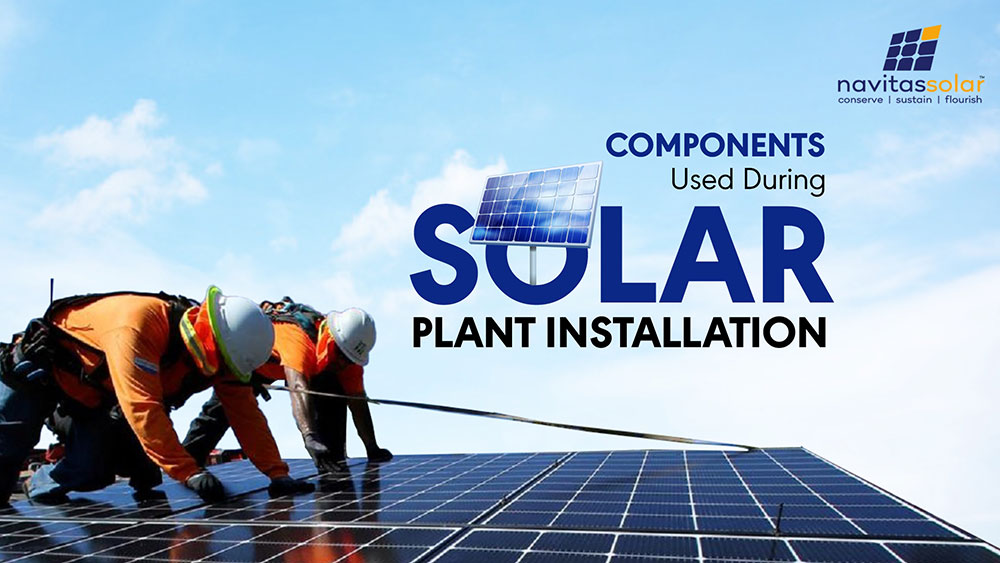May 3, 2022
Solar Plant Installation by Navitas Solar
Check out what makes the difference
While solar is an everlasting source of energy, we ought to pay attention to many things to ensure the best possible efficiency of our solar plant installation. If a solar plant is not installed properly, it may not generate an adequate amount of electricity.
At Navitas Solar, we strive to help our clients get optimum results from the solar plant installation, and hence, we have explained here the thorough process of solar plant installation and components used in the same.
A solar energy system can be installed in two different types depending on the requirement:
- Off-Grid Solar System: the solar plant is installed with a battery. There is no connection with the power grid in this system.
- On-Grid Solar System: the solar plant is installed without a battery with the grid.
The components used in the installation are as follows:
- Solar Panel: A solar panel is the primary component of the solar plant. It is used to convert the sunlight into electricity by the photovoltaic effect.

- Solar Inverter: A solar inverter is the component of a solar system that converts from DC energy to AC energy.

- Solar Battery: Solar battery is a component which stores DC energy. It is used to cater the load when grid supply is cut down.

- Solar charge controller: It is the converter, which converts normal inverter into a solar inverter. As the name suggests, it is responsible to control the under voltage and overvoltage.

- Panel structure: solar panel structure is the structure, which is used to fix the solar panels on the rooftop. It gives a supporting structure to lay on and protects the solar panels from wind.

- ACDB: ACDB protects solar inverter from the AC current side.

- DCDB: DCDB protects solar panels from DC currents side.

- Lighting Arrester: LA is a protecting device which is used to protect the solar panels and other electrical appliances from lighting. It is used in off grid as well as on grid systems.

- DC wire: It should be in PVC Pipe (of less than 3kW) and Cable Tray (of 3kW and above)

- AC wire: AC Wire is used for connection inverter with grid power and home loads.

- MC4 connectors: It is used to connect DC wire with the solar panels.

- Earthing kit: It is done for 6 to 10 ft. For 1 to 3 kW, there are 2 earthings, one for inverter and the other for LA. For the above 3 kW systems, there are 3 earthings, one for inverter, one for LA and one for solar panels.

The total installation process includes the following steps:
- Site Survey
- Panel Stand Installation
- Solar Panel Connection
- Civil Work
- Panel Wiring
- Battery Connection
- Inverter Connection
- Earthing Kit Installation
- LT panel connection


 Online | Privacy policy
Online | Privacy policy
Related Posts
You May Also Like
Bonito Series: Driving Innovation in…
Read MoreTOPCon Series: The Next Generation…
Read MoreValuable Points to Remember During…
Read MoreNavitas Planet Partners with Hysolwin…
Read MoreDriving Towards a Sustainable Future:…
Read MoreWhy Do Top-Grade EVA Sheets…
Read MoreBonito Series: Driving Innovation in…
Read MoreTOPCon Series: The Next Generation…
Read MoreValuable Points to Remember During…
Read MoreNavitas Planet Partners with Hysolwin…
Read MoreDriving Towards a Sustainable Future:…
Read MoreWhy Do Top-Grade EVA Sheets…
Read MoreBonito Series: Driving Innovation in…
Read MoreTOPCon Series: The Next Generation…
Read MoreValuable Points to Remember During…
Read MoreNavitas Planet Partners with Hysolwin…
Read More